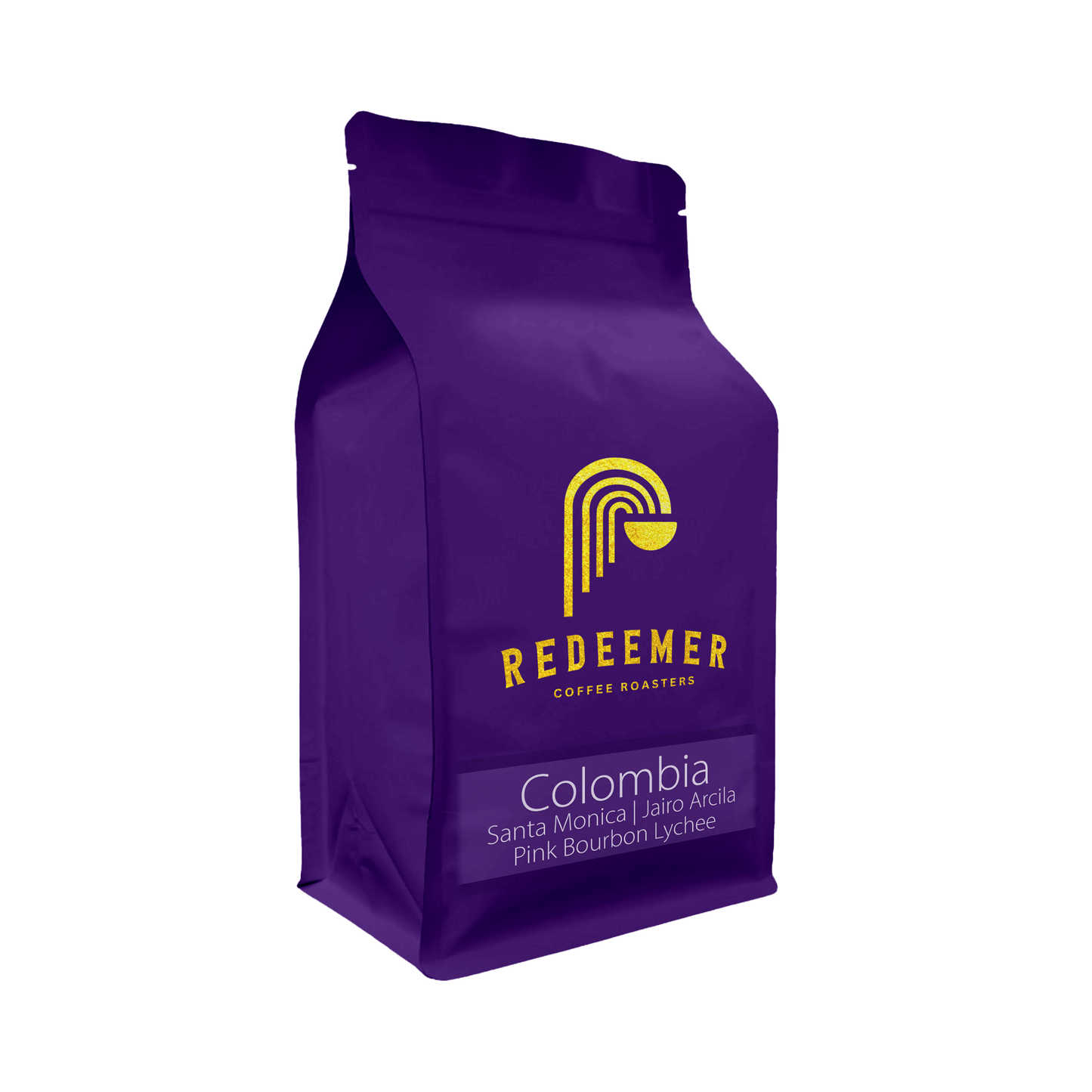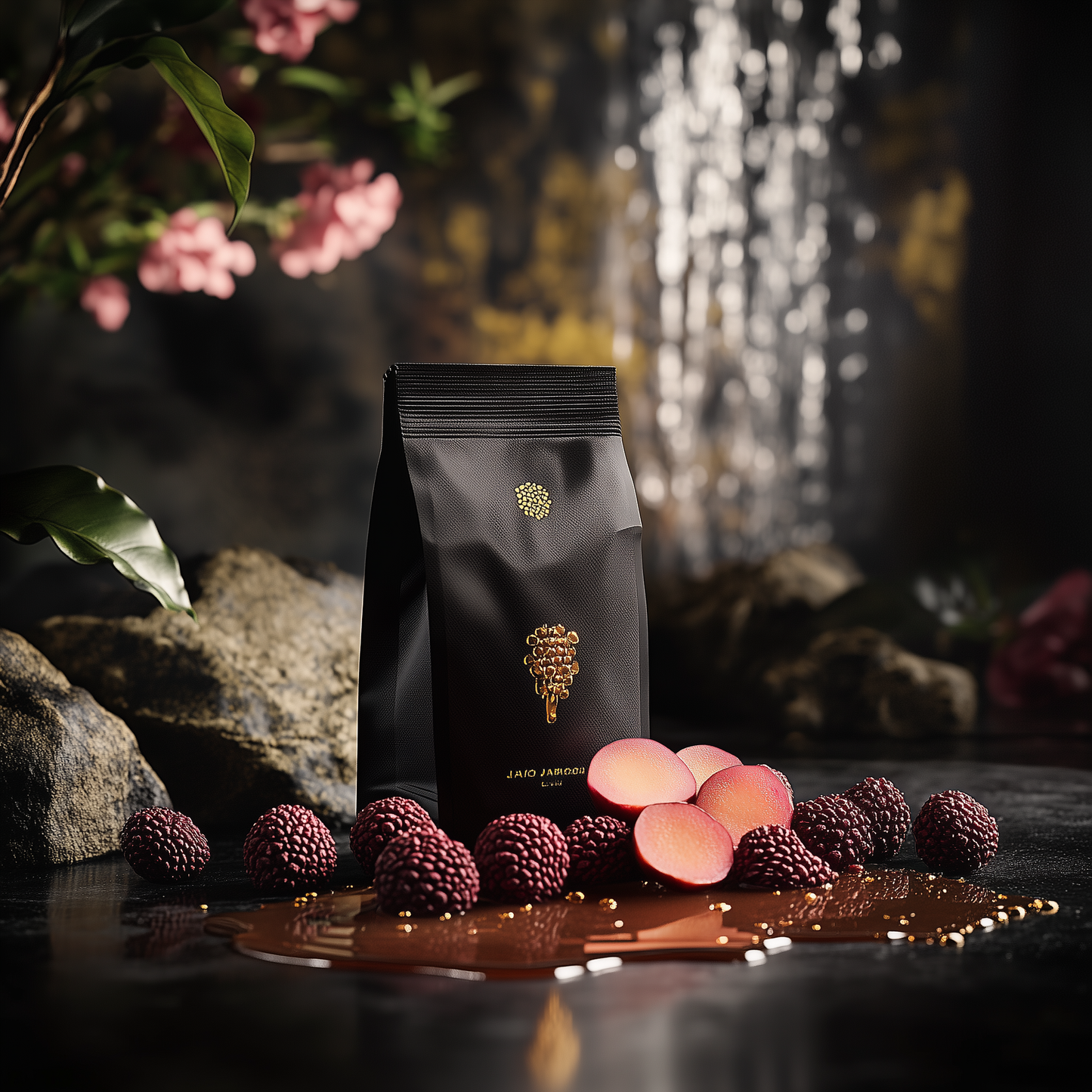

Are you looking to buy Colombia | Santa Monica | Jairo Arcila | Pink Bourbon Lychee in Australia?
Suitable with Milk? YES
Roast Level: Medium Light (66)
PROCESSING: Honey
Farm: Santa Monica
Producer: Jairo Arcila
Soil Characteristics: Volcanic Ash
Growing Temperatures: 18-28 degrees
Annual Rainfall: 1800-2000mm
Body ●●●●●
Sweetness ●●●●●
Balance ●●●●○
About Santa Monica & Jairo Arcila
Jairo Arcila is a third-generation coffee grower from Quindio, Colombia. He is married to Luz Helena Salazar and they have two children together, Carlos and Felipe Arcila. Jairo’s first job was at Colombia’s second-largest exporter, working as their Mill Manager for over 40 years until his retirement in 2019.
Jairo has received great advice and guidance from his sons who are now experts in producing Specialty Coffee. With their help, Jairo has greatly improved the picking, sorting, and processing of his coffees. His sons have also guided Jairo in the production of exotic varieties. He now grows varieties like Pink Bourbon, Java, Papayo ,and Gesha growing across his farms. The guidance from his sons has empowered Jairo and given him the tools needed to produce fantastic coffees with amazing flavour profiles.
Besides coffee, Jairo also grows other agricultural products on his farms such as mandarin, orange, plantain, and banana. Jairo enjoys starting the day with a really good breakfast! But most importantly, he enjoys spending time with his family.
-
About Pink Bourbon and the Honey Process
Pink Bourbon coffee beans are a rare and unique variety of Arabica coffee grown primarily in Colombia. Known for their distinct pinkish hue, these beans are a hybrid between Red and Yellow Bourbon varieties, and are highly prized for their vibrant and complex flavor profile. Pink Bourbon is challenging to cultivate due to its specific growing requirements, including altitude and careful temperature management. Farmers in Colombia's Huila and Nariño regions, where it is predominantly grown, carefully manage its production. In the cup, Pink Bourbon typically offers a unique blend of floral notes, tropical fruit, and bright acidity, making it a favorite among specialty coffee enthusiasts.
The honey process is a coffee processing method that falls between the washed and natural methods. After the coffee cherries are harvested, they are pulped to remove the outer skin, but a portion of the sticky mucilage, or "honey," remains on the beans. Instead of washing the beans entirely to remove all mucilage (as in the washed process), they are allowed to ferment slightly while drying. The level of mucilage left on the beans can range from light (white honey) to heavy (black honey), depending on how much mucilage is left and how long the beans ferment.
This process impacts the flavor profile of the coffee, creating a balanced combination of acidity, sweetness, and body. The honey process enhances sweetness and fruity notes, and it’s especially popular in countries like Costa Rica and El Salvador. For Pink Bourbon, using the honey process can emphasize the natural tropical and floral flavors, providing more complexity and sweetness to the cup. This method requires skilled handling to avoid over-fermentation, but when done correctly, it produces some of the most sought-after coffees in the specialty world.
Coffee in Colombia
Coffee in Colombia is renowned worldwide for its high quality and distinct flavor profiles, largely attributed to the country’s ideal growing conditions. Colombia’s geography, with its volcanic soils, high altitudes, and tropical climate, creates the perfect environment for cultivating Arabica coffee. The coffee-growing regions, such as Huila, Nariño, and Antioquia, are situated in the Andean mountain range, where the elevation allows coffee plants to thrive. Colombian coffee is known for its smooth, mild body with bright acidity and floral, fruity notes, often described as clean and balanced.
The coffee industry is also central to Colombia’s economy and cultural identity. The National Federation of Coffee Growers of Colombia (FNC), established in 1927, has played a significant role in promoting Colombian coffee globally. The federation works to ensure fair prices for farmers and high standards of production. Colombia’s dedication to sustainable and traditional farming practices has helped maintain its reputation as one of the top coffee producers in the world. Coffee farms in Colombia range from large estates to small family-owned plots, many of which use environmentally friendly practices to preserve the country’s rich biodiversity while producing some of the finest coffee.
How does my coffee come packaged?
- Choosing a selection results in a full page refresh.
- Opens in a new window.


